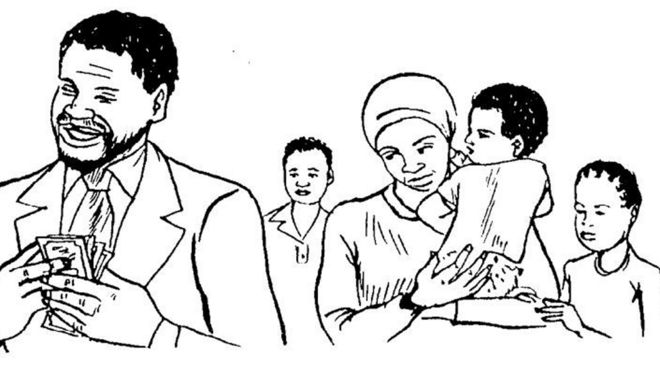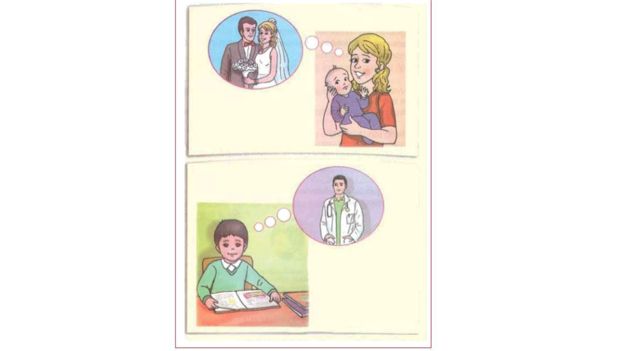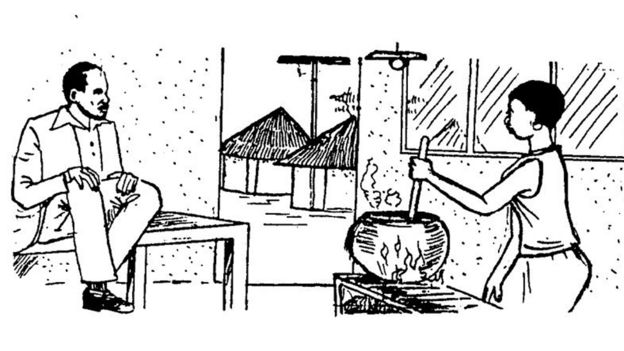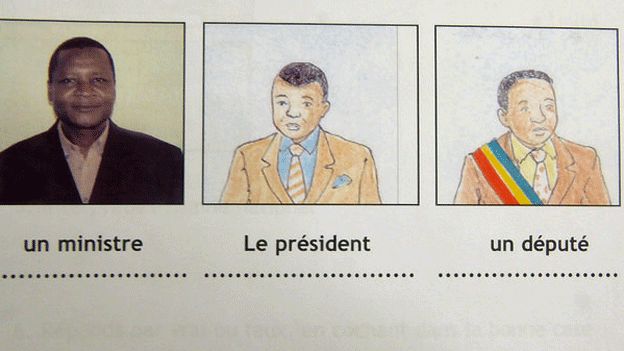- 8 March 2016
School Leadership 2.0
A Network Connecting School Leaders From Around The Globe
International Women's Day: Sexism rife in textbooks, says Unesco By Sean Coughlan
International Women's Day: Sexism rife in textbooks, says Unesco
 Image captionUnesco gathered examples of how textbooks could limit girls' expectations
Image captionUnesco gathered examples of how textbooks could limit girls' expectations
Sexist attitudes are "rife" in school textbooks used in developing countries, according to Unesco.
The United Nations agency, marking International Women's Day, says negative stereotyping undermines the education of girls.
It says too often female figures are represented in textbooks as "nurturing drudges" in domestic roles.
This is a "hidden obstacle" to gender equality, says Unesco's Manos Antoninis.
What is International Women's Day?
International Women's Day has been held on 8 March every year since 1913, and has been recognised by the United Nations since 1975.
The UN says it's a time to reflect on progress made, to call for change and to celebrate acts of courage and determination by ordinary women who have played an extraordinary role in the history of their countries and communities.
The theme of this year's day is "Planet 50-50 by 2030" - aiming to achieve global equality in areas such as education and end all forms of discrimination.
Unesco has campaigned to provide education for tens of millions of children without access to school - and in many poorer countries girls are the most likely to miss out.
This report highlights how female characters frequently appear in a secondary role in the books they use at school - and warns that it limits girls' career expectations.
 Image captionWhat do you want to do when you grow up? From a Turkish textbook
Image captionWhat do you want to do when you grow up? From a Turkish textbook"Ensuring all boys and girls go to school is only part of the battle," says Manos Antoninis, from Unesco's global education monitoring report.
"What they are being taught is equally, if not more, important. Persistent gender bias in textbooks is sapping girls' motivation, self-esteem and participation in school."
Unesco is inviting people to send in their own examples from text books, using the Twitter hashtag #BetweentheLines.
With examples from countries in Asia and Africa, the report says that men in textbooks are more likely to be depicted as business leaders, shopkeepers, engineers, scientists and politicians, while women remain likely to be seen in roles such as cooking or childcare.
Apart from gender stereotyping, the study says that text books are much more likely to depict men than women - and that is even more pronounced in science or maths text books.
 Image captionTextbook illustrations are criticised for perpetuating negative stereotypes
Image captionTextbook illustrations are criticised for perpetuating negative stereotypesIt says that in some cases only about one in 20 characters in science textbooks is female.
But the report says that there has been only slow progress in trying to get more equal representation.
It says there has been a lack of political will to pursue this and in some cases resistance from those responsible for school curricula or for producing textbooks.
Also marking International Women's Day is a report, Poverty is Sexist, from the development campaign group, One.
It says that gender inequality and poverty are interlinked, with women in poor countries, particularly in sub-Saharan Africa, likely to be worse off than their male counterparts.
 Image captionWhat does a politician look like? A textbook from DR Congo.
Image captionWhat does a politician look like? A textbook from DR Congo.The report says there are half a billion women around the world who cannot read - two thirds of the global total.
The campaign has drawn up a list of countries where it is "toughest to be born a girl", based on criteria such as access to health and education, economic opportunities, access to a bank account and political representation.
The top 10 in this ranking are: Niger, Somalia, Mali, Central African Republic, Yemen, DR Congo, Afghanistan, Cote d'Ivoire, Chad and Comoros.
JOIN SL 2.0
SUBSCRIBE TO
SCHOOL LEADERSHIP 2.0
Feedspot named School Leadership 2.0 one of the "Top 25 Educational Leadership Blogs"
"School Leadership 2.0 is the premier virtual learning community for school leaders from around the globe."
---------------------------
Our community is a subscription-based paid service ($19.95/year or only $1.99 per month for a trial membership) that will provide school leaders with outstanding resources. Learn more about membership to this service by clicking one of our links below.
Click HERE to subscribe as an individual.
Click HERE to learn about group membership (i.e., association, leadership teams)
__________________
CREATE AN EMPLOYER PROFILE AND GET JOB ALERTS AT
SCHOOLLEADERSHIPJOBS.COM
New Partnership
Mentors.net - a Professional Development Resource
Mentors.net was founded in 1995 as a professional development resource for school administrators leading new teacher induction programs. It soon evolved into a destination where both new and student teachers could reflect on their teaching experiences. Now, nearly thirty years later, Mentors.net has taken on a new direction—serving as a platform for beginning teachers, preservice educators, and
other professionals to share their insights and experiences from the early years of teaching, with a focus on integrating artificial intelligence. We invite you to contribute by sharing your experiences in the form of a journal article, story, reflection, or timely tips, especially on how you incorporate AI into your teaching
practice. Submissions may range from a 500-word personal reflection to a 2,000-word article with formal citations.
You need to be a member of School Leadership 2.0 to add comments!
Join School Leadership 2.0